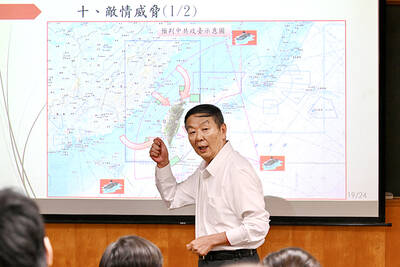The legislature passed a set of amendments to the Code of Criminal Procedure (
Yesterday was the last day of the current legislative session, and the new session will not start until mid-February. The legislature was expected to hold a night-owl session to finish the final review reading of the fiscal 2001 budget bill as soon as the criminal procedure amendments were passed.
If the budget bill is delayed until the next legislative session, the government will have problems implementing a number of new projects.
According to the criminal procedure amendments, prosecutors will be required to apply for a search warrant from judges before launching a search. In the case of an urgent situation -- where there is sufficient reason to believe that the search is crucial for the preservation of evidence -- a search can be conducted without the court's prior permission.
In addition to the pre-search procedure, there will be a post-search procedure to check for possible abuse of searches by prosecutors.
Prosecutors will be required to report to the court on the results of a search within three days of its taking place. If the court declares a search invalid, the evidence collected from the search will be disqualified for use in trial proceedings.
For most of yesterday the legislature was in recess after a Tuesday afternoon disagreement on the priority for handling the criminal procedure amendments and the fiscal 2001 budget.
The KMT insisted that the legislature pass the amendments before starting its final review reading of the fiscal 2001 budget. The DPP, New Party and People First Party, however, preferred passing the already delayed budget bill first, on the grounds that there were still wide inter-party differences over the details of the amendments.
As the KMT refused to make any concession, lawmakers spent almost the whole day negotiating details and wording of the amendment.
Despite their consensus on the basic principles of the amendments, the negotiations ran into trouble when lawmakers failed to agree on when the new system should be implemented.
While the KMT wants the system implemented one month after the amendment is passed, the DPP supports the Ministry of Justice's position and wants a one-year grace period between passage and implementation to facilitate preparatory work.
The New Party has proposed a six-month grace period to seek a compromise between the two.
"We won't let the amendment pass unless there is an agreement on the grace period," said DPP legislator Chiu Tai-san (
Owing to differences over the grace period, the legislative meeting had not started as of 10pm last night, which led legislators from the People First Party to stage a demonstration in the meeting chamber demanding Vice Speaker Yao Eng-chi (饒穎奇) stop discussions over the criminal procedure amendments and start reviewing the budget immediately.
The move also won the support of the DPP.

RETHINK? The defense ministry and Navy Command Headquarters could take over the indigenous submarine project and change its production timeline, a source said Admiral Huang Shu-kuang’s (黃曙光) resignation as head of the Indigenous Submarine Program and as a member of the National Security Council could affect the production of submarines, a source said yesterday. Huang in a statement last night said he had decided to resign due to national security concerns while expressing the hope that it would put a stop to political wrangling that only undermines the advancement of the nation’s defense capabilities. Taiwan People’s Party Legislator Vivian Huang (黃珊珊) yesterday said that the admiral, her older brother, felt it was time for him to step down and that he had completed what he

Taiwan has experienced its most significant improvement in the QS World University Rankings by Subject, data provided on Sunday by international higher education analyst Quacquarelli Symonds (QS) showed. Compared with last year’s edition of the rankings, which measure academic excellence and influence, Taiwanese universities made great improvements in the H Index metric, which evaluates research productivity and its impact, with a notable 30 percent increase overall, QS said. Taiwanese universities also made notable progress in the Citations per Paper metric, which measures the impact of research, achieving a 13 percent increase. Taiwanese universities gained 10 percent in Academic Reputation, but declined 18 percent

CHINA REACTS: The patrol and reconnaissance plane ‘transited the Taiwan Strait in international airspace,’ the 7th Fleet said, while Taipei said it saw nothing unusual The US 7th Fleet yesterday said that a US Navy P-8A Poseidon flew through the Taiwan Strait, a day after US and Chinese defense heads held their first talks since November 2022 in an effort to reduce regional tensions. The patrol and reconnaissance plane “transited the Taiwan Strait in international airspace,” the 7th Fleet said in a news release. “By operating within the Taiwan Strait in accordance with international law, the United States upholds the navigational rights and freedoms of all nations.” In a separate statement, the Ministry of National Defense said that it monitored nearby waters and airspace as the aircraft

UNDER DISCUSSION: The combatant command would integrate fast attack boat and anti-ship missile groups to defend waters closest to the coastline, a source said The military could establish a new combatant command as early as 2026, which would be tasked with defending Taiwan’s territorial waters 24 nautical miles (44.4km) from the nation’s coastline, a source familiar with the matter said yesterday. The new command, which would fall under the Naval Command Headquarters, would be led by a vice admiral and integrate existing fast attack boat and anti-ship missile groups, along with the Naval Maritime Surveillance and Reconnaissance Command, said the source, who asked to remain anonymous. It could be launched by 2026, but details are being discussed and no final timetable has been announced, the source